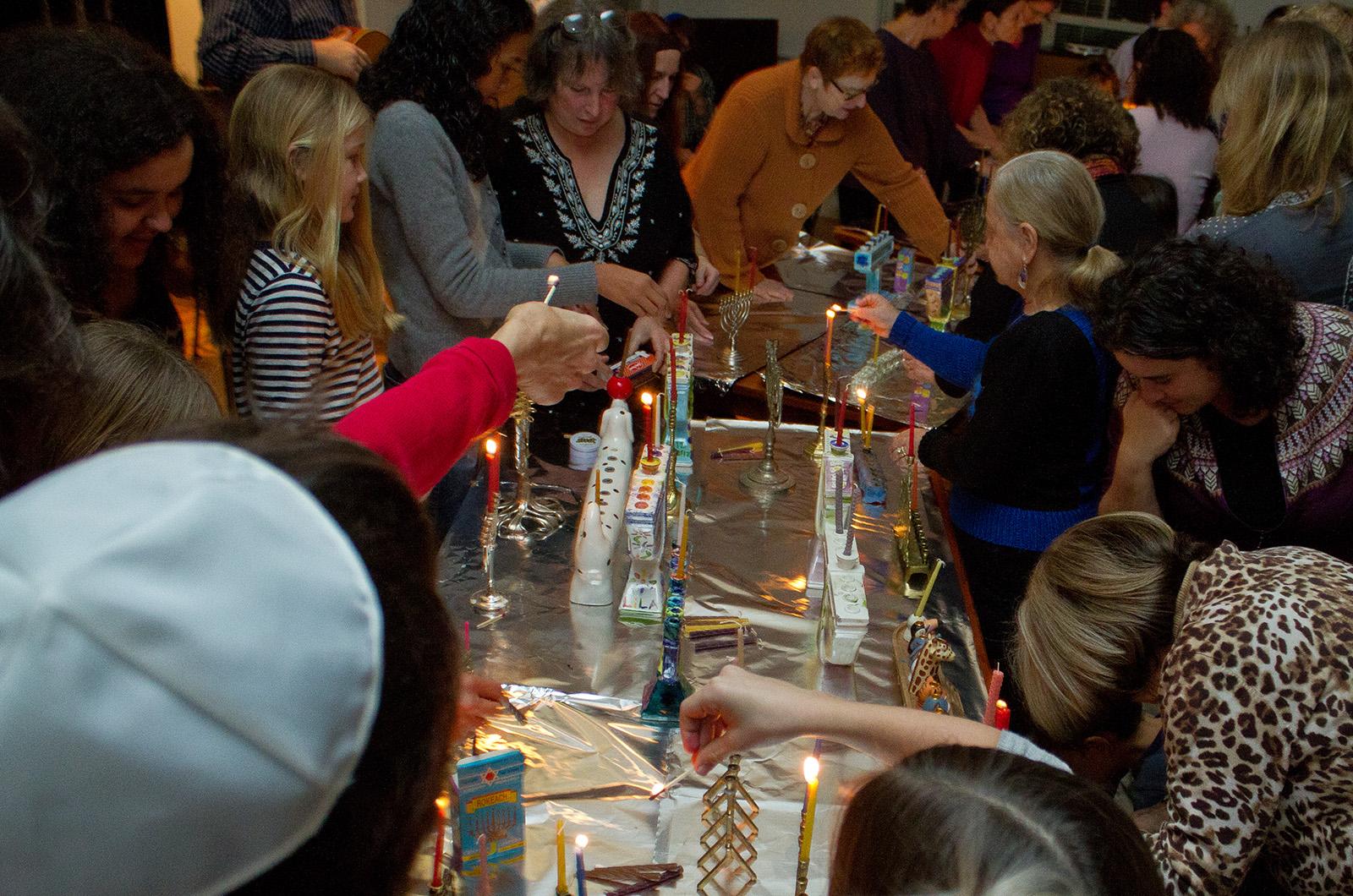What is a miracle? That may seem like an obvious question but times being what they are, and because we could certainly use a miracle or two, this is the question on my mind. What is a miracle and what can Hanukkah teach us about miracles?
Jewish tradition relates that when the Maccabees entered the damaged and desecrated Temple in Jerusalem after taking it back from the Syrian Greek Empire in around 165 BCE, they looked to see if there remained any oil sealed by the high priest with which they could light the Temple Menorah. They found one cruse of oil that was enough for one day. But the small amount of oil burned for eight days, which was long enough for the priest to prepare more and keep the light continuous.
But wait: if they found enough oil for one day, what was miraculous about the first day? That light burned as expected. Why wouldn’t you say that only the next seven days constituted a miracle?
This question, asked by 16th-century Rabbi Joseph Karo, was answered with a suggestion by one of my teachers, Rabbi J.J. Schachter. The miracle on the first day was that the high priest went ahead and lit the oil lamp at all. He could easily have said that it was not worth trying, that there would never be enough oil to last until they could prepare more oil. So why bother? I can even imagine lots of logical and practical people around him advising, “don’t even waste the oil that you have. It will just burn out after a day. There is no hope.”
And yet he did have hope. And it is hope, I believe, that was the miracle of that first day. It is hope that Hanukkah offers as one of its central teachings. And it is hope is so central to Jewish teaching, that one of Judaism’s many names for God is indeed “Hope,” Mikvei Yisrael, according to the prophet Jeremiah (17:13-14).
I want to explore the spiritual meaning of hope in a way that can guide us in these difficult times. There was no logical reason for those in the Hanukkah story have hope in that situation. And yet someone, whether the priest, or perhaps other people around him, people without titles yet with strength of spirit, had hope. They chose hope. As scholar Cornell William Brooks said about Martin Luther King Jr., “He reminded us that hope is not empirically demonstrated; it’s morally chosen.”
Hope, however, as the Hanukkah story suggests, is not passive. It is not something that just makes us feel better as we sit and wait for something to happen. Hope doesn’t replace action. It enables action.
Hope is different from optimism. When we are optimistic, we may act because we think we have a good chance of seeing positive results of our actions.
When we act out of hope, we choose to act even if we don’t know whether we will see the results in our lifetime. We choose to act because we know we can’t possibly see the whole picture, and we need to have faith that our actions can make a difference in unpredictable ways. As Israeli professor David Shulman of Jerusalem suggested in an interview with Christopher Lydon, “I make a kind of distinction between optimism and hope. Optimism is a mentalistic projection. Hope is a spiritual act.” He goes on to say: “I believe the day will come, I hope the day will come, when my grandchildren will be able to live here in a state that has equality for everybody and in which Israelis and Palestinians see each other as brothers. We are brothers.”
People often ask me in regards to Israelis and Palestinians, do you have any hope? You could ask that question about many of the existential questions we human beings face — and the answer for me would be the same. Without question, I have hope.
It is hope that has inspired people all over the world, often at great risk, to work for democracy and dignity for all. It is hope that has brought Israelis and Palestinians together in organizations in Israel like Standing Together and Women Wage Peace, that work for a shared vision of living together in peace and equality. These efforts may seem like a very small flame from a small cruse of oil. And there is no guarantee that whatever candle we light will result in the realization of the vision. That realization would indeed be a miracle. But the miracle is possible only if we are willing to take the first tiny step. If we are willing to act in hope and in faith. That is something all of us can do.
And that is why it is the first day of Hanukkah, the day in which the oil was already there, that is the most important night of all. Choose your candle to light this season, and together we can light up the world.
Rabbi Caryn Broitman lives in West Tisbury and is the rabbi at the Martha’s Vineyard Hebrew Center.






Comments (1)
Comments
Comment policy »